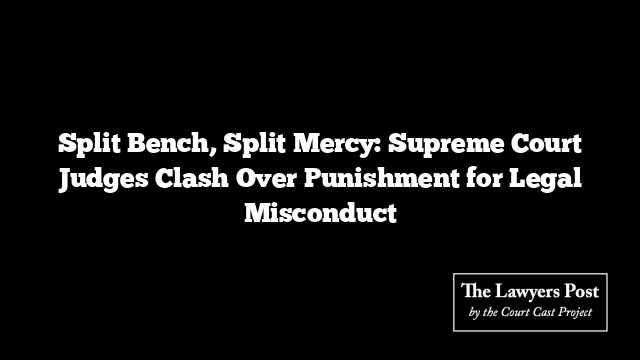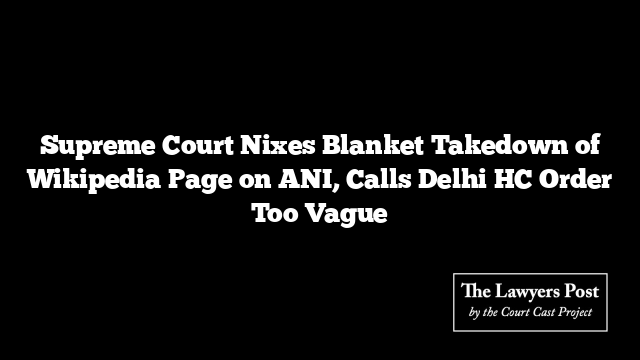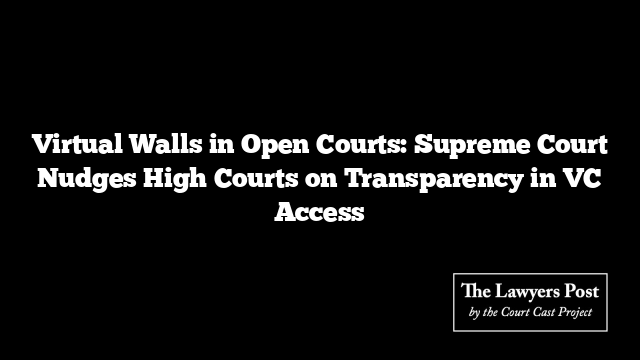A courtroom tug-of-war played out at the highest level today as two Supreme Court judges delivered sharply contrasting views on how to deal with a case of professional misconduct by an Advocate-on-Record (AoR) and his assisting counsel. The controversy centers around a petition riddled with suppressed facts—an act that both judges agreed betrayed the dignity of the institution, but not how to respond to it.
The judicial bench—Justices Bela M Trivedi and Satish Chandra Sharma—were unanimous that the advocates had failed in their duty. But that’s where the harmony ended.
Justice Trivedi wasn’t having any of the apologetic overtures or the bar’s chorus of leniency. She proposed that the AoR’s name be suspended from the Register for a month and that the assisting advocate pay ₹1 lakh to SCAORA’s welfare fund. She laid out in detail how the AoR not only misled the court by filing a second Special Leave Petition (SLP) despite an earlier dismissal but did so without properly advising the petitioner of the legal implications—effectively playing both counselor and co-conspirator.
Her words were biting:
“The AoR has misused the process of law… and instead of giving correct legal advice has himself filed applications with his own signatures and with affidavits sworn by his colleague… without stating the correct facts.”
Justice Trivedi spared them formal contempt charges but made it clear that consequences were non-negotiable:
“Some action is definitely required to be taken against them for their grave and serious misconduct… conduct unbecoming of an Advocate.”
Justice Sharma, on the other hand, took a gentler approach—leaning heavily on the advocates’ “penitent hearts,” clean records, and tearful apologies. He stressed that while the duo had erred, their remorse was genuine and their apology sufficient. The judge invoked not just the Court’s motto—“where there is dharma, there will be victory”—but added his own: “forgiveness is the root of dharma.”
“To err is human,” he seemed to say, “but to suspend might be overkill.”
With no consensus in sight, the matter now heads to Chief Justice Sanjiv Khanna for the deciding word.
The controversy emerged from a legal sleight-of-hand: after the first SLP was dismissed with a clear direction to surrender, a second SLP appeared—challenging the same judgment and sidestepping the Court’s prior order. The judges didn’t take kindly to it, calling out “distorted facts” and pointing to what they saw as an obvious case of contempt.
The courtroom drama had its share of theatrics too. At one point, Justice Trivedi called out the collective pressure from senior advocates urging leniency, asking bluntly, “Is this the way we should succumb?”
The AoR, whose absence at a key hearing was explained away by “poor connectivity in the village,” was eventually hauled in physically, along with travel documents. Despite the elaborate apologies and community support, the shadow of contempt hovered—just narrowly avoided.
Now, with the bench split and the profession watching closely, the final decision rests with the Chief. Whether justice will lean toward accountability or redemption remains to be seen.





